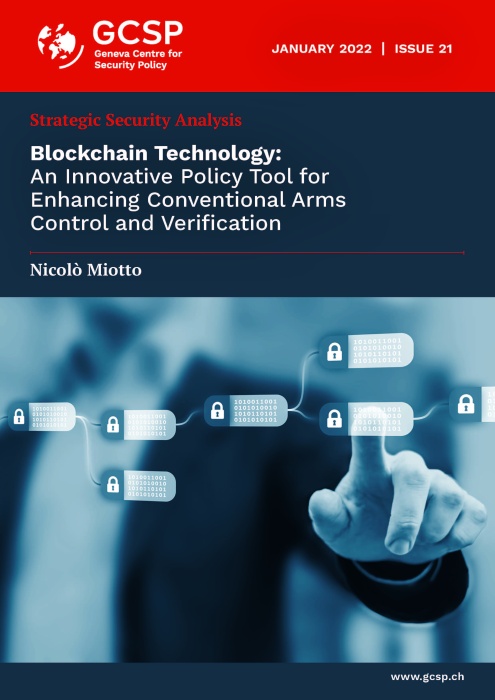Blockchain Technology: An Innovative Policy Tool for Enhancing Conventional Arms Control and Verification
18 January 2022
Key points
- Blockchain represents an unprecedented opportunity for enhancing conventional arms control (CAC) and verification. Based on the principles of transparency, verifiability, and predictability, this state-of-the-art technology could build confidence and facilitate the implementation of arms control mechanisms.
- Blockchain-based so-called “smart contracts” have advantageous practical implications for CAC. They could improve the verification of countries’ compliance with their CAC obligations by enhancing monitoring procedures and could strengthen arms export controls by improving treaty signatories’ ability to monitor weapons and ammunition supply chains.
- Reinforcing the Organization for Security and Cooperation in Europe (OSCE) framework for conventional ammunition control with a permissioned blockchain would provide greater confidentiality and improve monitoring and data verifiability, thus strengthening the OSCE’s CAC regimes.
Disclaimer: The views, information and opinions expressed in the written publications are the authors’ own and do not necessarily reflect those shared by the Geneva Centre for Security Policy or its employees. The GCSP is not responsible for and may not always verify the accuracy of the information contained in the written publications submitted by a writer.


